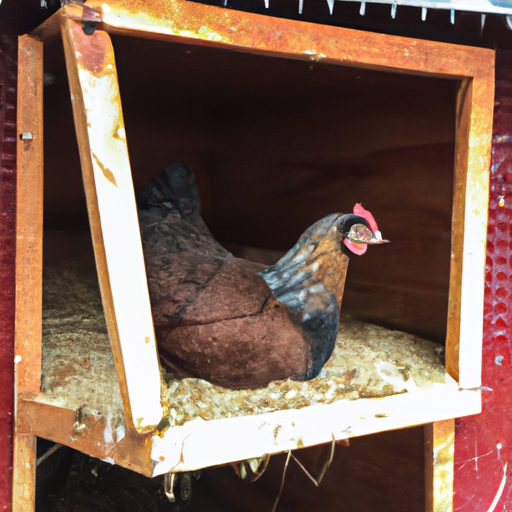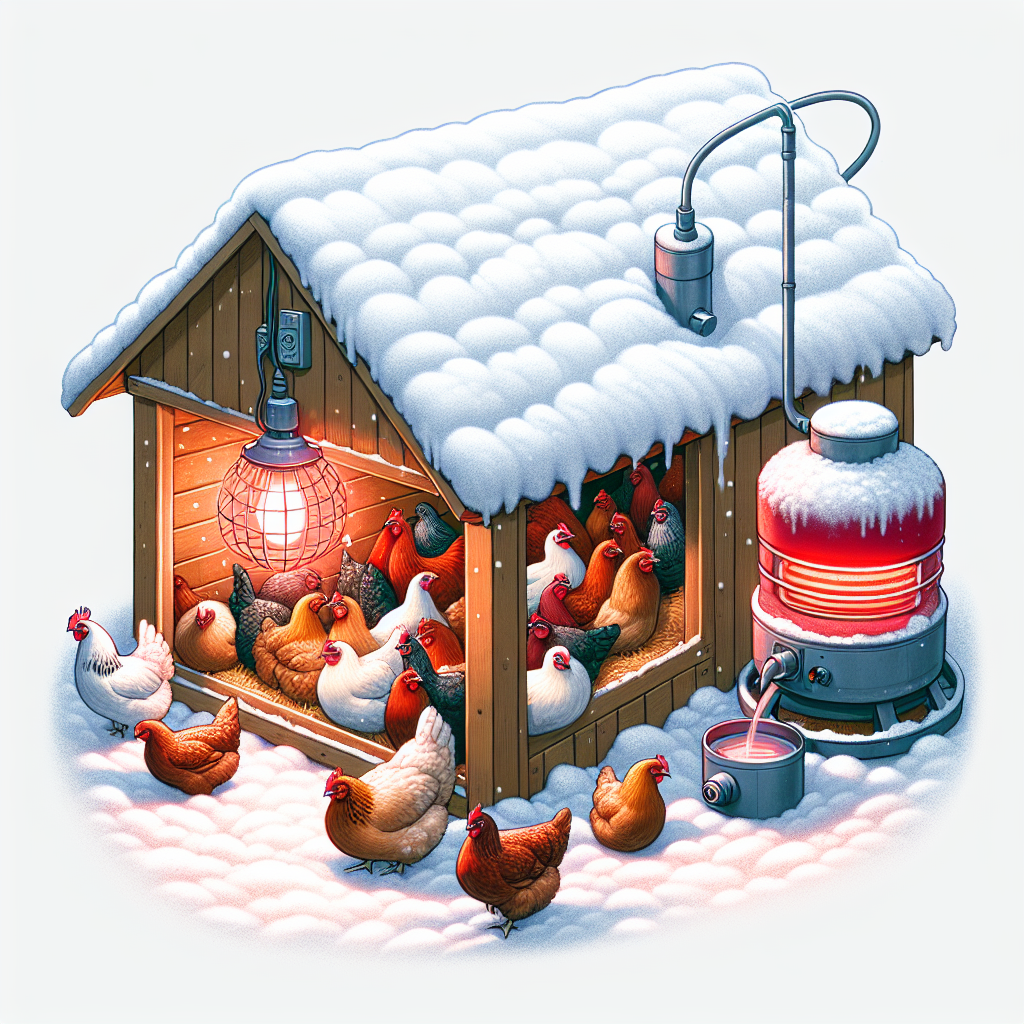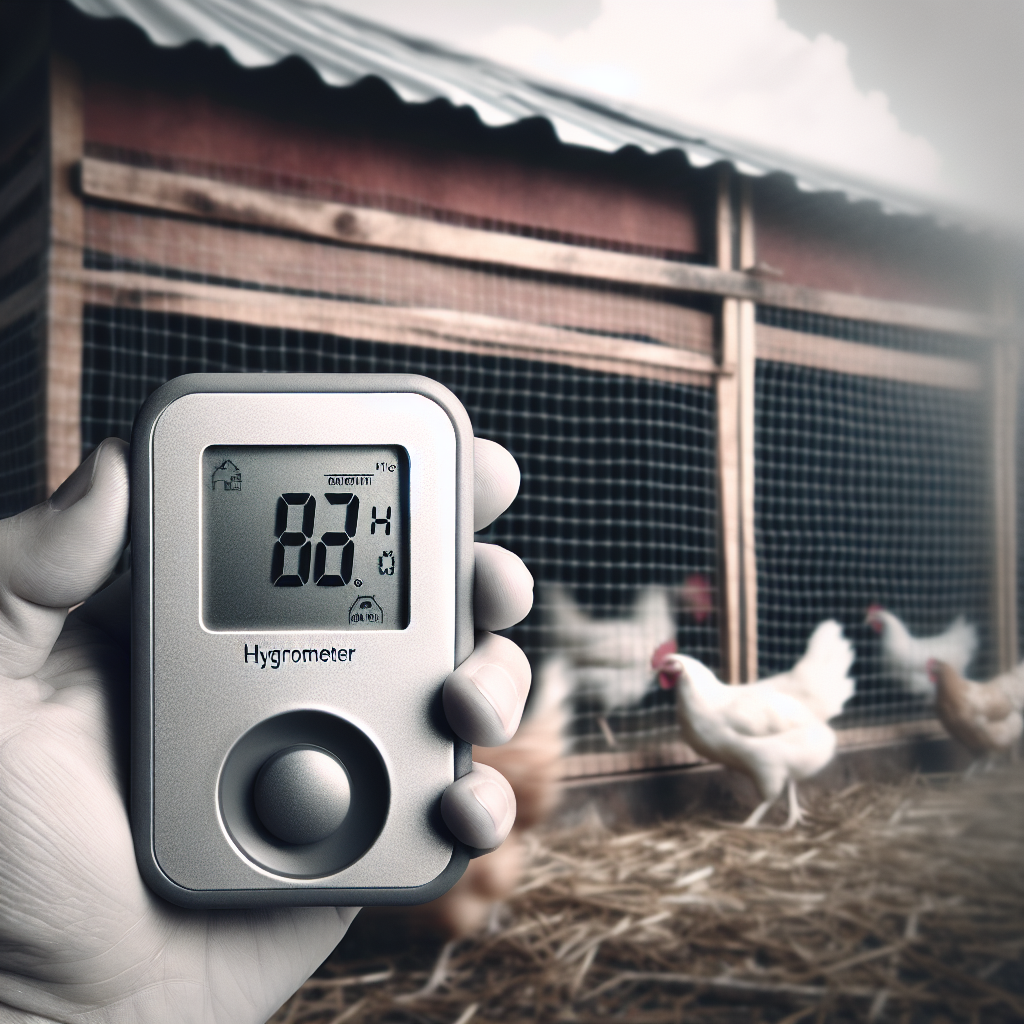During the winter months, it’s important to ensure that your chickens are provided with the ideal temperature and conditions to keep them healthy and comfortable. But what exactly are these ideal conditions? In this article, we will explore the optimal temperature range for chickens during winter, as well as the essential tips and tricks to create a cozy and safe environment for your feathered friends. So, let’s jump right in and discover how to keep your chickens happy and thriving even when the cold weather sets in.
Ideal Temperature and Conditions for Chickens During Winter
Understand the Importance of Proper Temperature and Conditions for Chickens
As winter approaches, it is essential to understand the importance of providing the ideal temperature and conditions for your chickens. Just like humans, chickens are sensitive to extreme weather conditions, and maintaining a suitable environment for them during the cold winter months is crucial for their well-being and productivity.
Impact of Cold Weather on Chickens
Cold weather can have a significant impact on chickens, affecting their health, egg production, and overall happiness. When temperatures drop, chickens may experience discomfort and stress, which can lead to a decrease in egg production. Additionally, extreme cold can cause frostbite, respiratory issues, and higher susceptibility to diseases.
To ensure your flock remains happy and healthy during the winter season, it is imperative to provide them with adequate housing, nutrition, and protection from predators.
Housing for Chickens: Creating a Cozy Environment
Creating a cozy environment for your chickens is the first step in maintaining their well-being during winter. Here are some important factors to consider when designing their housing:
1. Insulation and Ventilation
Insulating the chicken coop is crucial to keep the cold air out and maintain a comfortable temperature inside. Proper ventilation is equally important to prevent the buildup of moisture and ammonia, which can lead to respiratory issues. Ensure there are adequate windows or vents that can be opened or closed depending on the weather conditions.
2. Dry and Clean Bedding
Providing your chickens with dry and clean bedding is vital to keep them warm and prevent them from getting frostbite. Straw or wood shavings are excellent choices for bedding material during winter. Regularly remove any wet or soiled bedding to maintain a hygienic environment.
3. Space and Roosting Bars
Chickens need enough space to move around freely and roost comfortably during the winter months. Ensure your chicken coop is spacious enough to accommodate all birds without overcrowding. Adding roosting bars at different heights allow chickens to perch and maintain body heat.
4. Natural or Artificial Lighting
During winter, daylight hours are shorter, which can disrupt the natural egg-laying cycle of chickens. Consider providing additional lighting in the chicken coop to artificially extend the daylight hours and encourage consistent egg production. Providing 14-16 hours of light a day can help maintain egg-laying capacity.
Feeding and Watering Chickens: Importance and Considerations
Proper nutrition and access to fresh water are essential for the well-being of your chickens, especially during winter. Here are a few considerations to keep in mind:
1. Provide Adequate Nutrition
Chickens require a well-balanced diet to stay healthy and maintain egg production during winter. Ensure they have access to a high-quality feed that is specifically formulated for their needs. Additionally, consider providing supplements such as poultry vitamins and minerals to support their immune system.
2. Keep Water from Freezing
Water is essential for chickens to stay hydrated and maintain their bodily functions. However, in freezing temperatures, water sources can quickly freeze, depriving your flock of access to water. Invest in heated waterers or consider manually thawing the water multiple times a day to ensure continuous access to fresh water.
Health and Hygiene: Preventing Common Winter Issues for Chickens
Winter brings along specific health and hygiene concerns for chickens, but with proper care, you can prevent them from occurring. Here are a few tips to keep your chickens healthy during this season:
1. Frostbite Prevention
Frostbite is a common issue during winter, particularly affecting chickens’ combs, wattles, and feet. Apply petroleum jelly or animal-safe lubricants on their exposed body parts to provide a protective barrier against the cold. Additionally, make sure the chicken coop is well-insulated and free from drafts.
2. Combating Moisture and Humidity
Moisture and humidity can lead to respiratory issues and the growth of harmful bacteria in the chicken coop. Ensure proper ventilation to prevent these problems. Avoid using water in a vaporizer or humidifier inside the coop as it can increase the humidity levels and contribute to respiratory issues.
3. Dealing with Pests
Pests such as mites and lice thrive in warm and cozy environments. During winter, these pests can cause discomfort and weaken the chickens’ immune system. Regularly inspect your chickens for signs of infestation and treat them promptly with appropriate remedies, following manufacturer instructions.
Predator Protection: Keeping Chickens Safe during Winter Nights
Winter nights can pose additional risks for your chickens as predators may be more desperate for food. Securing your chicken coop and run is vital to keep them safe. Here’s how you can protect your flock:
1. Reinforcing Coops and Runs
Inspect your chicken coop and run for any potential entry points that may allow predators to enter. Repair any holes or gaps in the fence, and reinforce the coop with sturdy materials. Make sure windows and doors are secure and cannot be easily opened by predators.
2. Regular Checks and Security Measures
Perform regular checks on your coop to ensure it is secure and predator-proof. Consider installing locks or latches that are difficult for predators to manipulate. Additionally, check for signs of predation in the surrounding area and take necessary precautions.
3. Using Motion-Activated Lights or Alarms
Motion-activated lights or alarms can serve as excellent deterrents against nocturnal predators. When triggered, these devices create a sudden burst of light or sound, scaring away potential threats. Install them strategically around the coop and run to provide an added layer of protection.
By understanding the ideal temperature and conditions for chickens during winter, you can ensure the well-being of your feathered friends and maximize their productivity. Create a cozy environment, provide adequate nutrition and water, maintain hygiene, and protect them from predators. With proper care, your chickens will thrive even during the coldest months of the year. Stay warm, stay safe, and enjoy the company of your happy, healthy flock!




